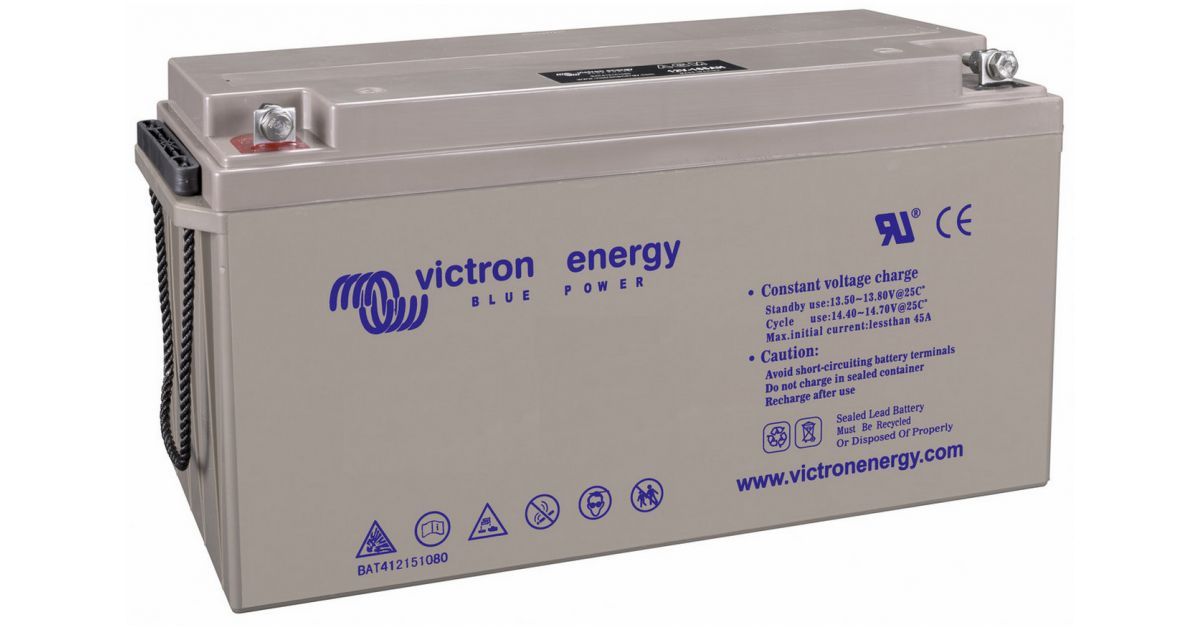A 6-volt deep cycle battery is a robust and rechargeable energy storage device designed for applications requiring prolonged, steady power output. Ideal for use in RVs, boats, and off-grid systems, these batteries can endure repeated cycles of discharging and recharging, ensuring a reliable and durable power source for various applications.
Here a question arises What is a 6 volt deep cycle battery? The battery is your reliable powerhouse, delivering consistent and enduring energy for RV adventures, marine escapades, and off-grid living. Designed for lasting performance, it’s the go-to solution for a steady power supply that won’t let you down. With durability and versatility in mind, this battery empowers your journey with peace of mind.
The battery is a robust and rechargeable energy storage solution designed for sustained power delivery. Widely used in applications like RVs and marine systems, it offers reliable performance over extended periods. Its versatility makes it a go-to choice for various off-grid and mobile power requirements.
Key Characteristics of 6 Volt Deep Cycle Batteries
6-volt deep cycle batteries are characterized by their 6-volt operating voltage, making them suitable for specific power applications. The amp-hour (Ah) rating reflects their energy delivery capacity, crucial for sustained power demands in various settings. These batteries excel in handling deep discharges, ensuring reliable performance over extended periods.
Voltage Specifications
Voltage specifications in the context of 6-volt deep cycle batteries denote the electrical potential difference they provide. With a fixed operating voltage of 6 volts, these batteries are tailored for applications like RVs and solar systems, where a consistent power level is critical. Adhering to specific voltage requirements is essential for optimal performance in diverse electrical applications.
Amp-Hour Ratings
Amp-hour ratings measure a 6-volt deep cycle battery’s energy storage capacity over one hour. Important for applications with steady power needs, such as RVs or renewable energy, a higher rating means more extended usage before recharging. When choosing batteries, a higher amp-hour rating ensures a longer and dependable power supply.
Applications and Uses of 6 Volt Deep Cycle Batteries

6-volt deep cycle batteries find versatile use in applications like RVs, boats, and golf carts due to their reliable power supply. They’re also integral in off-grid solar systems, providing sustained energy. Their adaptability makes them a go-to choice for various portable and renewable energy solutions.
RV and Marine Applications
6-volt deep cycle batteries are extensively used in RVs and marine applications for their dependable power output. Ideal for powering lights, appliances, and other electronics in RVs, they also ensure reliable starting and auxiliary power for boats. Their durability and deep cycling capability make them essential for extended trips and marine adventures.
Solar Power Systems
In solar power systems, 6-volt deep cycle batteries serve as vital energy storage units, capturing and storing electricity generated by solar panels. This stored energy ensures a steady power supply during periods of low sunlight or at night, enhancing the reliability of solar installations. The deep cycling capability of these batteries makes them integral components in sustainable and off-grid solar power solutions.
Golf Carts and Electric Vehicles
6-volt deep cycle batteries are widely employed in golf carts and electric vehicles, providing the necessary power for efficient operation. Their design supports the frequent charge and discharge cycles required in these applications, ensuring longevity and reliability. The use of these batteries contributes to the eco-friendly and sustainable nature of electric transportation systems.
Comparing 6 Volt Deep Cycle Batteries

When comparing 6-volt deep cycle batteries, factors such as brand reputation, amp-hour ratings, and durability are crucial considerations. Different brands may offer variations in performance and longevity, impacting the overall reliability of the battery. Assessing these aspects helps in making an informed decision based on specific power needs and application requirements.
Brand Varieties
The market for 6-volt deep cycle batteries boasts a variety of brands, each with distinct features and performance attributes. Recognized brands often offer reliability and proven track records, ensuring a quality investment. Consumer reviews and ratings are valuable resources to gauge the effectiveness and satisfaction associated with different brand choices.
Performance Metrics
Performance metrics for 6-volt deep cycle batteries encompass factors like cycle life, charge/discharge efficiency, and resistance to deep discharges. These metrics determine the battery’s ability to withstand usage patterns, provide sustained power, and maintain overall effectiveness over time. Evaluating performance metrics is crucial in selecting a battery that aligns with specific application requirements and delivers optimal, reliable performance.
Choosing the Right 6 Volt Deep Cycle Battery
Selecting the right 6-volt deep cycle battery involves assessing voltage compatibility, amp-hour ratings, and application-specific needs. Ensure the battery aligns with the electrical system’s voltage requirements and provides sufficient energy storage for sustained power. Tailoring the choice to the intended use, be it in RVs, solar systems, or other applications, ensures optimal performance.
Factors to Consider
When choosing a 6-volt deep cycle battery, crucial factors include assessing voltage compatibility, understanding amp-hour ratings, and considering the specific requirements of the intended application. Ensuring alignment with voltage specifications, evaluating energy storage capacity, and tailoring the choice to meet the demands of the application are key considerations for optimal battery selection.
Matching Battery to Application
Matching a 6-volt deep cycle battery to the application involves aligning voltage and amp-hour ratings with specific power needs. This tailored approach ensures optimal performance and longevity for applications such as RVs, solar systems, or golf carts
Maintenance Practices for 6 Volt Deep Cycle Batteries

Maintaining 6-volt deep cycle batteries involves regular charging, monitoring water levels, and inspecting for corrosion. Adhering to proper charging guidelines ensures optimal performance, while routine checks help prevent issues in applications like RVs and renewable energy systems, contributing to battery longevity.
Charging Guidelines
Adhering to charging guidelines is essential for 6-volt deep cycle batteries. Use suitable charging equipment, avoid overcharging, and follow recommended voltage and current specifications to ensure longevity and optimal performance. These practices are crucial for applications like RVs and renewable energy systems.
Watering and Inspection
Regular watering and inspection are essential maintenance practices for 6-volt deep cycle batteries. Monitoring and replenishing water levels in flooded batteries prevent dehydration, ensuring longevity. Routine inspections for signs of corrosion or damage contribute to sustained performance, especially in applications like RVs and renewable energy systems.
Longevity and Durability of 6 Volt Deep Cycle Batteries
The longevity and durability of 6-volt deep cycle batteries depend on factors like construction quality and resistance to deep discharges. Regular maintenance and adherence to charging guidelines contribute to extended battery life in applications such as RVs and renewable energy systems. Choosing reputable brands further enhances overall durability.
Expected Lifespan
The expected lifespan of 6-volt deep cycle batteries varies based on usage patterns and maintenance. Typically, with proper care and adherence to charging guidelines, these batteries can last anywhere from 3 to 10 years. Factors such as application, depth of discharge, and overall usage significantly influence the longevity of these batteries.
Factors Affecting Battery Life
The lifespan of 6-volt deep cycle batteries is influenced by factors like the depth of discharge, frequency of cycles, and ambient temperature. Regular maintenance, proper charging practices, and avoiding deep discharges contribute to extending battery life. Understanding and mitigating these factors are essential for maximizing the longevity of these batteries in applications such as RVs and renewable energy systems.
Advancements in 6 Volt Deep Cycle Battery Technology
The latest advancements in 6-volt deep cycle batteries feature advanced chemistries like lithium-ion, boosting energy density. Smart Battery Management Systems (BMS) further optimize performance, ensuring prolonged battery life and reliability.
Increased Energy Density
6-volt deep cycle batteries now boast higher energy density, allowing them to store more power in a smaller and lighter package.
Enhanced Cycle Life
Improved materials and manufacturing techniques have extended the cycle life of 6-volt deep cycle batteries, making them more durable and longer-lasting.
Faster Charging Times
Innovations in charging technology enable quicker replenishment of 6-volt deep cycle batteries, reducing downtime and improving overall efficiency.
Advanced Monitoring Systems
Integration of sophisticated monitoring systems provides real-time data on battery health, allowing users to optimize performance and prevent premature failures.
Maintenance-Free Designs
Modern 6-volt deep cycle batteries often feature maintenance-free designs, eliminating the need for regular water refilling and simplifying the user experience.
Improved Resistance to Deep Discharge
Enhanced chemistry and design enable 6-volt deep cycle batteries to withstand deeper discharges without compromising performance, making them more reliable in demanding applications.
Environmentally Friendly Materials
The use of eco-friendly materials in manufacturing contributes to a more sustainable product life cycle for 6-volt deep cycle batteries, aligning with growing environmental concerns.
Integration of 6 Volt Deep Cycle Batteries in Renewable Energy Systems
In renewable energy systems, 6-volt deep cycle batteries play a pivotal role by storing surplus energy from sources like solar or wind. This stored energy ensures a continuous power supply during periods of low renewable energy generation, enhancing the system’s reliability. The adaptability of 6-volt deep cycle batteries makes them indispensable for off-grid applications and contributes to the overall sustainability of renewable energy solutions.
Off-Grid Solutions
Off-grid solutions, powered by renewable sources like solar and wind, utilize advanced 6-volt deep cycle batteries for reliable energy storage, ensuring uninterrupted power in remote areas or during grid disruptions. These systems promote energy independence, environmental sustainability, and resilience in off-grid locations.
Backup Power for Solar Installations
In solar installations, 6-volt deep cycle batteries serve as essential backup power solutions, storing surplus energy for use during low sunlight or grid failures. This ensures a consistent and reliable power supply, enhancing the resilience of solar energy systems. The integration of these batteries optimizes energy utilization and contributes to a more robust and self-sufficient solar infrastructure.
Troubleshooting and Common Issues with 6 Volt Deep Cycle Batteries
Troubleshooting 6-volt deep cycle batteries involves addressing common issues such as sulfation, which occurs when batteries are left in a discharged state for extended periods, leading to reduced capacity. Overcharging can also cause electrolyte loss and damage. Regular maintenance, avoiding deep discharges, and using appropriate charging equipment can mitigate these issues, ensuring optimal performance and longevity for 6-volt deep cycle batteries.
Frequently Asked Questions
How long do 6 volt deep cycle batteries last?
The lifespan of 6-volt deep cycle batteries typically ranges from 3 to 10 years, depending on usage patterns, maintenance, and application.
How far can you discharge a 6 volt deep cycle battery?
Discharging a 6-volt deep cycle battery beyond 50% is not recommended to maintain optimal performance and prolong its lifespan.
How many cells are in a 6V deep cycle battery?
A 6-volt deep cycle battery typically has three cells.
What is the full charge voltage of a 6V deep cycle battery?
The full charge voltage of a 6-volt deep cycle battery is approximately 6.37 to 6.45 volts.
What is 50% discharge of a deep cycle battery?
A 50% discharge of a deep cycle battery means using half of its total capacity, leaving the remaining 50% for optimal performance and battery health.
Final Thoughts
The 6-volt deep cycle battery stands as a reliable power solution, offering versatility in applications such as RVs, marine systems, and solar installations. Its key characteristics, including voltage specifications and amp-hour ratings, make it well-suited for sustained power demands. Regular maintenance, adherence to charging guidelines, and understanding factors affecting battery life contribute to maximizing the lifespan and overall performance of these batteries.








